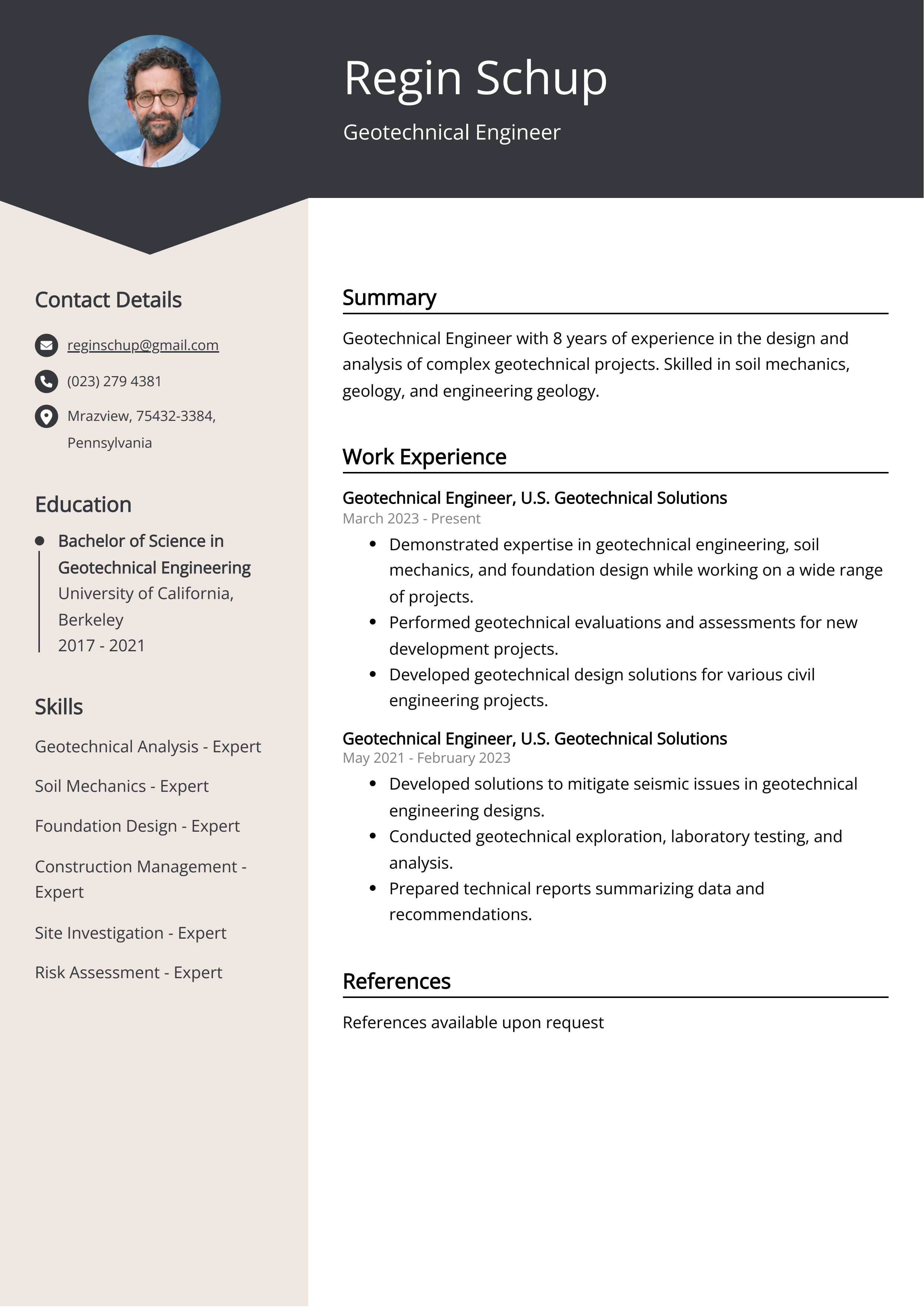The Greatest Guide To Geotheta
Table of ContentsThe Only Guide for GeothetaAll about GeothetaAll About GeothetaA Biased View of Geotheta
They team up with civil engineers, architectural engineers, engineers, and various other experts to incorporate geotechnical factors to consider right into the total project style and construction process. This requires efficient team effort, coordination, and communication to ensure that the geotechnical aspects line up with the task goals and fulfill regulative needs.Mining & Products Engineering: Principles of drilling, penetration prices, and elements influencing the choice of boring method. Attributes of dynamites, firing systems and blast patterns. Blasting methods in surface and below ground functions. Special blasting methods at excavation perimeters. Vibration and sound control. Mechanical and continual approaches to fragmentation, including longwall shearing and fullface boring.
Modelling of piece and particle dimension distributions; comminution as a transfer feature. Comminution technology: crushing, grinding, size category. Integrated evaluation of fragmentation and comminution procedures. Offered by: Mining & Products Engineering.
The 2-Minute Rule for Geotheta
Bachelor's degree programs in civil, geotechnical, geological, and ecological engineering normally last 4 years and consist of basic education courses in English, social scientific research, and the liberal arts, as well as training courses in innovative maths, architectural geology, and fluid mineralogy. (https://flossy-rotate-3d1.notion.site/Why-Geotechnical-Engineers-are-Vital-for-Your-Construction-Projects-7c147cf012a34d1abe5134afbabc811f?pvs=4)
Geotechnical engineering entails the evaluation of the soil and rock problems at a particular website, and their implications for the growth of that site. As a lot of structures count on the ground for support, it is without shock that an in-depth understanding of the ground problems, and the suitability of structure systems, are essential to the lasting stability and performance of the building or framework.
Being experts in the examination of geological formations and ground practices, geotechnical engineers carry out scientific investigations and screening to comprehend the influence these geological developments may have on the layout and building of structure, civil and infrastructure tasks. This proficiency is critical for the layout and building and construction of buildings, roads, tunnels, dams, bridges, and supply of water and sewer system.
The geotechnical team at Douglas Allies consistently speak with architects, style designers, designers, and contractors to make recommendations on style and development proposals to guarantee that the built frameworks are accordingly made for the ground conditions. For instance, the style of footing systems requires to take into consideration the weight of the structure, the capacity of the ground to support that weight with each other with movement resistances and effective building.
Geotheta Fundamentals Explained
This job is substantially simplified by the use our Douglas Map geospatial platform that makes this information conveniently easily accessible in an easy to use internet browser interface. A geotechnical engineer will certainly guide the boring of boreholes and test pits to gather soil and various other samples, and additionally assess surface area attributes and ground exposures to create a geotechnical model of the subsurface problems.
Depending on the task type and ground problems came across, lab screening may to name a few points evaluate strength, compressibility, reactivity and/or permeability of soil and rock samples. After this information is accumulated and collated, the results are utilized for a geotechnical version of the site, which is generally offered as sections across the website.

A geotechnical investigation naturally can only examine the ground problems at the areas drilled or dug deep into. All-natural variants in dirt and rock conditions can occur throughout a website and in between examination places. It is consequently excellent method that the geotechnical designer be kept throughout building and construction of the project to offer on-site confirmation that the ground problems come across follow the assumptions and guidance provided in the geotechnical examination record.
Geotheta for Dummies
Geotechnical engineers utilize their in-depth knowledge of soil like it and rock to examine threat and fix problems on diverse facilities projectsGeotechnical engineering is a specialist branch of civil engineering which looks at the behaviour of earth materials and the application of dirt and rock mechanics. Geotechnical Engineers. As a geotechnical designer, you will assess the physical, mechanical and chemical residential or commercial properties of dirt and rock in order to design structures, maintaining structures and earthworks
Geotechnical engineering is closely linked to and overlaps with, both design geology and ground design - https://pubhtml5.com/homepage/jugmn/. It's possible to be experts in geotechnics or benefit a geotechnical firm but be called a design geologist or a ground designer. As a geotechnical engineer, you'll need to: construct and maintain relationships with clients and various other professionals associated with the website, throughout each projectmaintain security standards on website bear in mind cost ramifications when you make recommendationsstudy geological maps and airborne photographs from an array of resources and from different time periodsexamine construction prepares to see just how viable they are based on your understanding of the siteinvestigate dangers or geological threats for the sitesearch for ecologically sensitive functions, such as garbage dump beginning to create factual and interpretive ground modelsplan area investigationsdrill and analyse samples of bedrock, soil, groundwater and extra products supervise other specialists on sitesolve technological issues as they arise, such as unforeseen frameworks at drill sitesmonitor problems during and after building to ensure frameworks are steady in the short and lengthy termadding data accumulated on site to your preliminary researchcreating geotechnical computations, drawings, and 2 or three-dimensional computer system models interpreting the datamaking referrals regarding the recommended usage of the site
